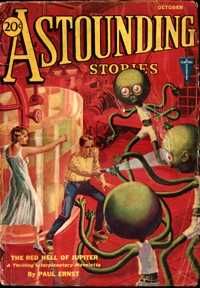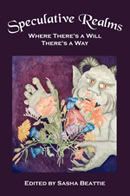Reading break
 I've read more short stories in the last few days than I have in the last year, I think. But no, it was not simply for pleasure. That was just a welcome side benefit.
I've read more short stories in the last few days than I have in the last year, I think. But no, it was not simply for pleasure. That was just a welcome side benefit.In a couple of weeks, I'm giving a presentation on writing speculative fiction, to a group of writers who don't write specfic as a usual thing. Some of them have likely never written anything in the speculative genres, and possibly never read anything in those genres, either.
For that reason, I thought I'd like to assign them a few stories to read before the workshop, just so that we would have a few more talking points and all be on the same page (no pun intended). I had a few criteria--the stories had to be of short-to-moderate length, available online, accessible to readers outside the genre, and had to exemplify a couple of the things I'm planning to talk about. For example, the importance of good writing regardless of genre, the difference between story and mere anecdote, a certain depth of characterization.
I found that "accessibility" was the most difficult criterion to fill. For readers who are unfamiliar with standard genre tropes, I felt that stories with a minimum of SF jargon and a setting that was at least somewhat Earthlike might be best. However, it becomes obvious that we speculative fiction writers expect a lot from our readers--or is it that our readers expect a lot from us? I begin to think that specfic writers tend to start invoking the "sensawunda" as soon as possible at the beginning of many stories, dangling a tempting hook for our readers so that we can quickly reel them in. For readers coming to specfic for the first time, however, I think many of these stories would be too unfamiliar, offering too much "difference" too soon, for non-genre readers to stay with them long enough to become invested in the story. To get their specfic legs under them, so to speak.
And of course, personal taste enters into it and can't be separated from the selection process, so the stories I chose would not necessarily be the ones someone else would choose. Still, it was an interesting exercise. I've asked the workshop participants, if they begin reading one of the stories and don't finish it, to make a note of where they stopped and why. Could be some interesting comments there.
Anyway, after a few days of (mostly) enjoyable reading, I settled on four stories to recommend. Three are science fiction, and one is fantasy. Since I'm recommending them in my workshop, I thought I'd recommend them here, too. They are:
SF Short story - "Jimmy's Roadside Cafe" by Ramsey Shehadeh http://www.strangehorizons.com/2008/20080630/roadside-f.shtml
Fantasy Short story - "Sun Magic, Earth Magic" by David D. Levine http://www.beneath-ceaseless-skies.com/story.php?s=9
SF Short story - "Ghosts and Simulations" by Ruthanna Emrys http://www.strangehorizons.com/2007/20071112/ghosts-f.shtml
The last piece is a novella, but since it won a Hugo award at WorldCon in Montreal this summer (and I was there to see it!), it is definitely worth the time investment:
SF Novella - "The Erdmann Nexus" by Nancy Kress http://www.asimovs.com/hugos_2009/ErdmannNexus.shtml
If you read any of the stories, please tell me what you think of them. Happy reading!
*Magazine cover art from http://www.bigmeathammer.com/gallery.htm






















 Yesterday morning I opened an email from a publisher I'd queried about The Seventh Crow. To my delight, they were requesting a look at the full manuscript.
Yesterday morning I opened an email from a publisher I'd queried about The Seventh Crow. To my delight, they were requesting a look at the full manuscript. Last year I was pleased to have my short story, "Summer of the Widows," appear in an anthology titled Speculative Realms: Where There's a Will, There's a Way. It's a wonderfully eclectic mix of fantasy, science fiction, and horror stories from a global collection of writers.
Last year I was pleased to have my short story, "Summer of the Widows," appear in an anthology titled Speculative Realms: Where There's a Will, There's a Way. It's a wonderfully eclectic mix of fantasy, science fiction, and horror stories from a global collection of writers.